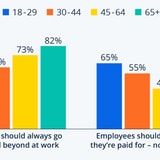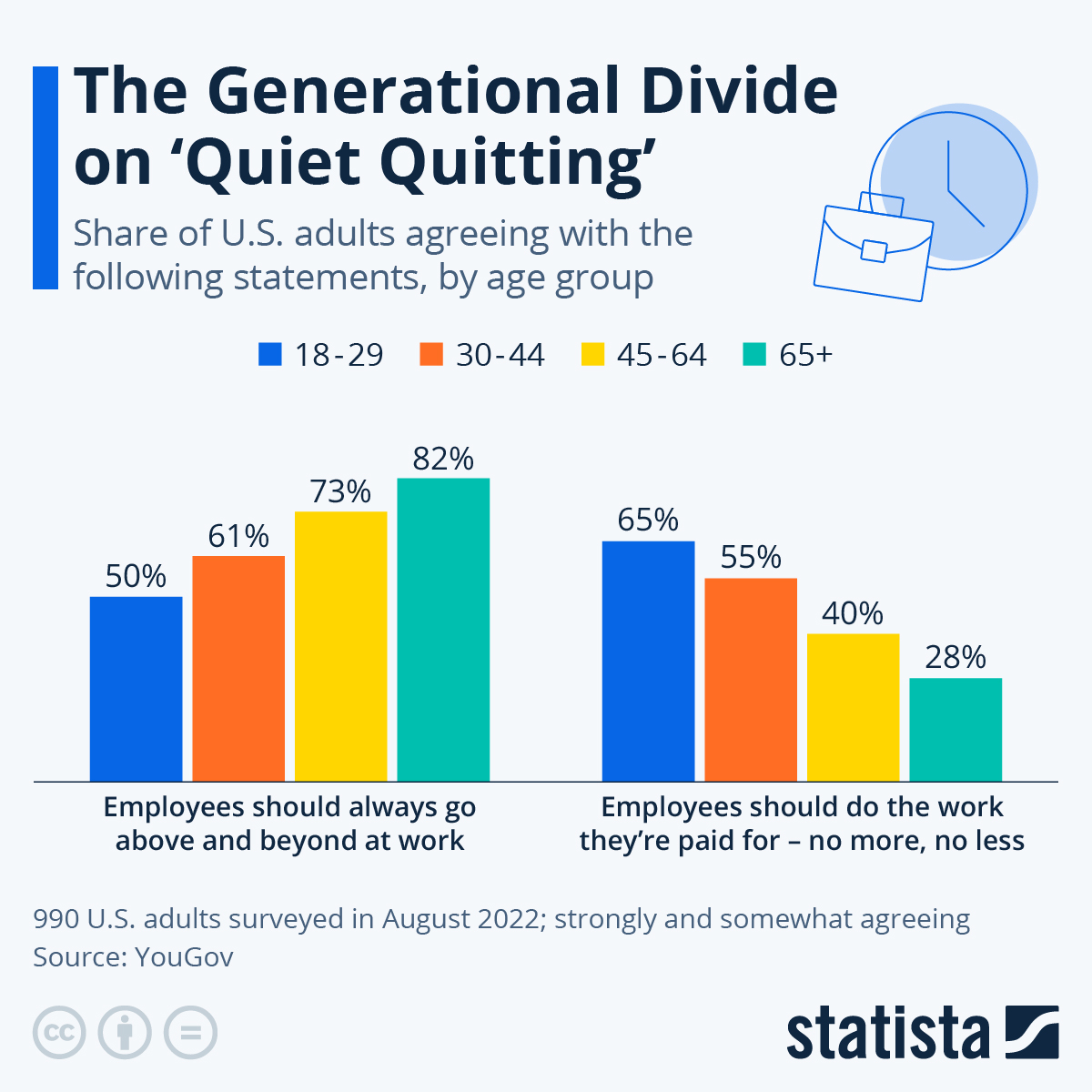
The term "quiet quitting" is all over the internet right now. Definitions range from setting healthy work-life boundaries to refusing to go above and beyond for your boss — but really, it's got nothing to do with quitting your job, and simply means doing nothing more than what your role demands.
The quiet quitting trend is gaining popularity among younger workers, but older generations tend to hold more traditional attitudes towards work — like the idea that you should always go the extra mile for your employer, even if your efforts aren't recognized or compensated.
Statista visualized the findings from a recent YouGov survey exploring how different age groups feel about statements relating to quiet quitting — and the generational divide is clear.
Key Findings
-
Eighty-two percent of Americans aged 65 and older believe that employees should always go above and beyond at work, while only half of the 18- to 29-year-olds agree.
-
Sixty-five percent of those aged 18 to 29 believe employees should do no more and no less than the work they're paid for — a sentiment that just 28 percent of those in the 65+ age group share.
Via Statista.



